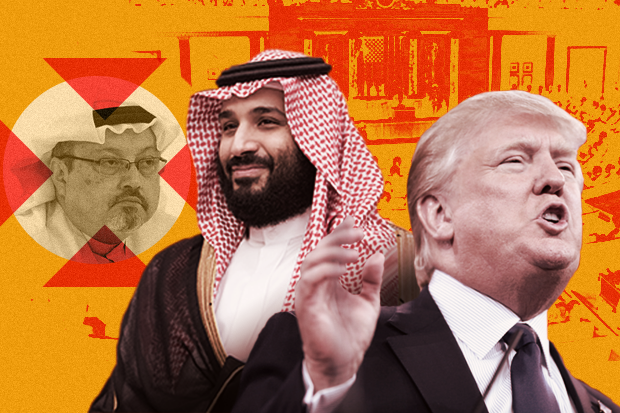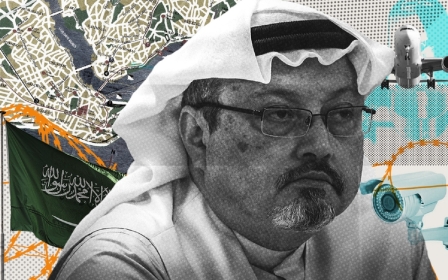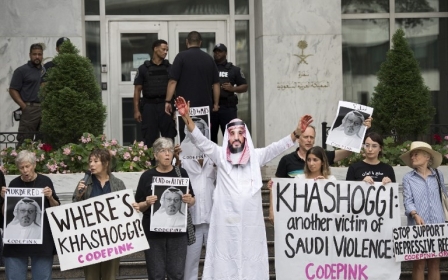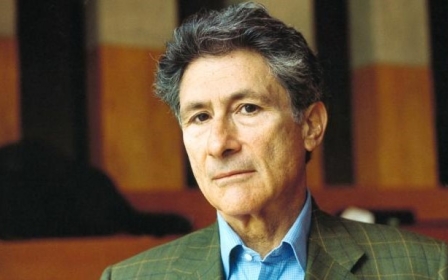The West enabled Khashoggi's demise - not to mention all the other Saudi crimes
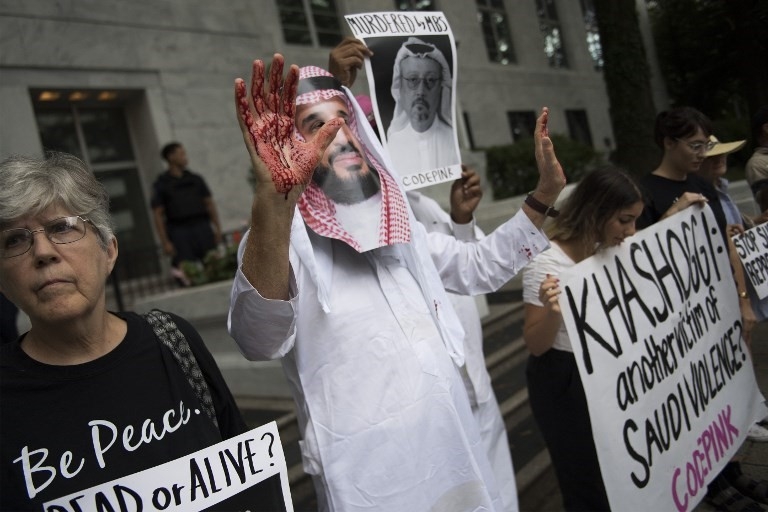
On 2 October, Saudi journalist Jamal Khashoggi, a contributing columnist for the Washington Post, entered Saudi Arabia's consulate in Istanbul, never to be seen again.
After multiple denials, Saudi Arabia confirmed on 19 October that Khashoggi had been killed inside the building. In a statement on Saudi state television, the country's chief prosecutor said a fight broke out between Khashoggi and "people who met him" in the consulate. The brawl resulted in Khashoggi's death, the prosecutor said.
According to Turkish officials, he was in fact executed and dismembered.
Although formerly a close associate of the Saudi ruling family, Khashoggi had exiled himself last year.
Friedman's trite ideas
Writing before the Saudi admission, New York Times foreign affairs columnist Thomas Friedman quickly took to the pages of his own publication to announce that he was "praying for" Khashoggi, whose abduction or murder by agents of the Saudi government would "be a disaster for MBS [Saudi crown prince Mohammed bin Salman] and a tragedy for Saudi Arabia and all the Arab Gulf countries".
By "disaster," Friedman means a potential decline in Western support for Saudi Arabia and Western investments in the kingdom, although the word might more accurately describe his own career, which has included a far-too-long November 2017 ode to MBS titled "Saudi Arabia's Arab Spring, at Last".
Not that Friedman wasn't a Saudi fan even before the allegedly reform-driven MBS ushered in springtime; previous Friedmanian soundbites come to mind, like: "The problem with Saudi Arabia is not that it has too little democracy. It's that it has too much," and "Of course, we must protect the Saudis".
Friedman's latest contemplation of the Khashoggi "saga" is titled "America's Dilemma: Censuring MBS and Not Halting Saudi Reforms". The myth of reform, it seems, will go on - and will continue to be upheld by US journalists even when their journalist friends are killed
Now, Friedman tells us, the elimination of Khashoggi would be "an unfathomable violation of norms of human decency, worse not in numbers but in principle than even the Yemen war" - a rather abominable statement given the ongoing bombardment and starvation of that country by a Saudi- and Emirati-led coalition backed by the US and UK.
In August, for example, the coalition dropped a 500-pound bomb on a Yemeni school bus, massacring 40 children. Granted, none of them were employed by the Washington Post.
CNN reported that the bomb in question was manufactured by that pillar of the US military-industrial complex known as Lockheed Martin, an unsurprising revelation in light of the $110 bn US-Saudi defence deal conjured up by Donald Trump last year in Riyadh.
And it's arrangements like these that help ensure that most victims of Saudi Arabia won't be given the time of day, much less various weeks of sustained media coverage.
Enamoured media coverage
Consider some of the highlights of Amnesty International's write-up for Saudi Arabia for 2017/2018, aka the period of the Saudi Spring: "Many human rights defenders and critics were detained and some were sentenced to lengthy prison terms after unfair trials. Several Shia activists were executed, and many more were sentenced to death following grossly unfair trials ... Torture and other ill-treatment of detainees remained common."
Over at the UK's Independent, David Wearing - teaching fellow in international relations at Royal Holloway, University of London, and author of the newly released AngloArabia: Why Gulf Wealth Matters to Britain - addresses bin Salman's much-hyped move to allow women to drive: "[W]hat should also be remembered is that, at around the same time, the women who fought for this right were being variously imprisoned, intimidated into silence and smeared as foreign agents."
So much for enamoured Western media coverage of "Crown Prince charming" and "Saudi Arabia's reform-minded royal," not to mention headlines like "America should get behind Saudi Arabia's revolutionary crown prince," courtesy of the same newspaper that brought us Khashoggi.
As the Khashoggi case unfolds, meanwhile, the Jadaliyya website has compiled a series of articles offering much-needed context, including historian Abdullah al-Arian's response last year to Friedman's MBS ecstasy: "Seventy Years of the New York Times Describing Saudi Royals as Reformers".
Beyond the issue of the grating Orientalism-bordering-on-dog-training-advice contained in this excerpt, Friedman fails to explain how it is that an overtly maniacal US president with consistently bad impulses might succeed in nurturing good ones in others
As the Jadaliyya editors stress in their introduction, this month's sudden critics of Saudi Arabia "include a cross-section of US government, think tank, and media personalities that are themselves guilty at best of ignoring, and at worse covering up, the authoritarian nature of the Saudi regime and the various forms of systematic violence it deploys".
Of course, the US itself is incredibly well-versed in systematic violence, from the regular police murder of African-American citizens to bellicose adventures abroad entailing all manner of slaughter, mutilation, and torture. So why shouldn't it team up with other violent entities - particularly when, as in the case of Saudi Arabia, tyranny directly serves Western political and economic goals?
US' savage behaviour
And since the US consistently undertakes to endow its own savage behaviour with a veneer of democracy-freedom-and-human-rights talk, it's only natural that egregious euphemisms be deployed on behalf of its pals as well. Which is how we end up with the state of Israel - executioner and dismemberer extraordinaire of Palestinians - whitewashed into the position of angel-hero, while Saudi Arabia and other notorious regional human rights abusers are catapulted into the role of "modernising reformers".
Never mind that, in addition to its contributions to the destruction of Yemen, the UAE presides over a system of modern-day slavery.
As for Saudi Arabia, Friedman argued in his endearingly titled piece "Crazy Poor Middle Easterners" - published a month before the disappearance of Khashoggi - that there were in fact "two halves of the same MBS package, and ... our job is to help curb his bad impulses and nurture his good ones. But Trump - who still doesn't even have an ambassador in Saudi Arabia - is AWOL."
'Free rein to continue silencing the media'
Beyond the issue of the grating Orientalism-bordering-on-dog-training-advice contained in this excerpt, Friedman fails to explain how it is that a US president with consistently bad impulses might succeed in nurturing good ones in others.
Friedman's latest contemplation of the Khashoggi "saga" is meanwhile titled "America's Dilemma: Censuring MBS and Not Halting Saudi Reforms". The myth of reform, it seems, will go on - and will continue to be upheld by US journalists even when their journalist friends are killed.
In a final column written by Khashoggi, and published by the Washington Post on 17 October, the journalist incidentally discussed his perusal of the 2018 "Freedom in the World" report published by Freedom House (self-advertised as "an independent watchdog organisation dedicated to the expansion of freedom and democracy around the world" and yet funded in substantial part by the US government).
The report classifies the majority of Arab countries as "not free". A few of Khashoggi's personal takeaways: "As a result, Arabs living in these countries are either uninformed or misinformed ... A state-run narrative dominates the public psyche ... Arab governments have been given free rein to continue silencing the media at an increasing rate."
But while censorship and the imposition of state-run narratives is certainly less overt in the West, we mustn't forget that time the New York Times went to war on Iraq, or, more generally, all the countless times the US media have been complicit in the dissemination of propaganda on behalf of murderous regimes at home and abroad.
Near the end of his column, Khashoggi opined that "Arabs need to read in their own language so they can understand and discuss the various aspects and complications of democracy in the United States and the West".
Judging from the past couple of hundred years, "complications" would appear to be one hell of an understatement indeed.
- Belen Fernandez is the author of The Imperial Messenger: Thomas Friedman at Work, published by Verso. She is a contributing editor at Jacobin magazine.
The views expressed in this article belong to the author and do not necessarily reflect the editorial policy of Middle East Eye.
Photo: A demonstrator dressed as Saudi Arabian Crown Prince Mohammed bin Salman (C) with blood on his hands protests outside the Saudi Embassy in Washington, DC, on 8 October 2018, demanding justice for missing Saudi journalist Jamal Khashoggi (AFP)
New MEE newsletter: Jerusalem Dispatch
Sign up to get the latest insights and analysis on Israel-Palestine, alongside Turkey Unpacked and other MEE newsletters
Middle East Eye delivers independent and unrivalled coverage and analysis of the Middle East, North Africa and beyond. To learn more about republishing this content and the associated fees, please fill out this form. More about MEE can be found here.



